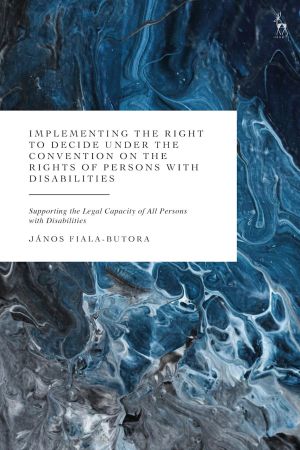
This book addresses one of the most controversial questions in contemporary human rights law: how can persons with severe cognitive disabilities make their own decisions?
Historically, vulnerable persons have been considered incapable, and guardians were appointed to represent their interests, which has led to serious abuses. The Convention on the Rights of Persons with Disabilities (CRPD), adopted in 2006, requires that they receive support to make their own decisions. However, governments claim it is impossible to fully implement this international requirement.
This book tackles the issue of decision-making from both a legal and theoretical perspective. It explores how supported decision-making could incorporate safeguards to protect the vital interests of vulnerable persons in order to present a viable legal alternative to guardianship. It accepts that some persons' abilities are very limited, but contends that guardianship is not the appropriate response, even in such cases. Instead, the book presents a unique Modified Support Framework, which can incorporate all persons with disabilities, fulfilling the goals of the CRPD.